Eduards, the Latvian learning Welsh and bringing shared histories to light
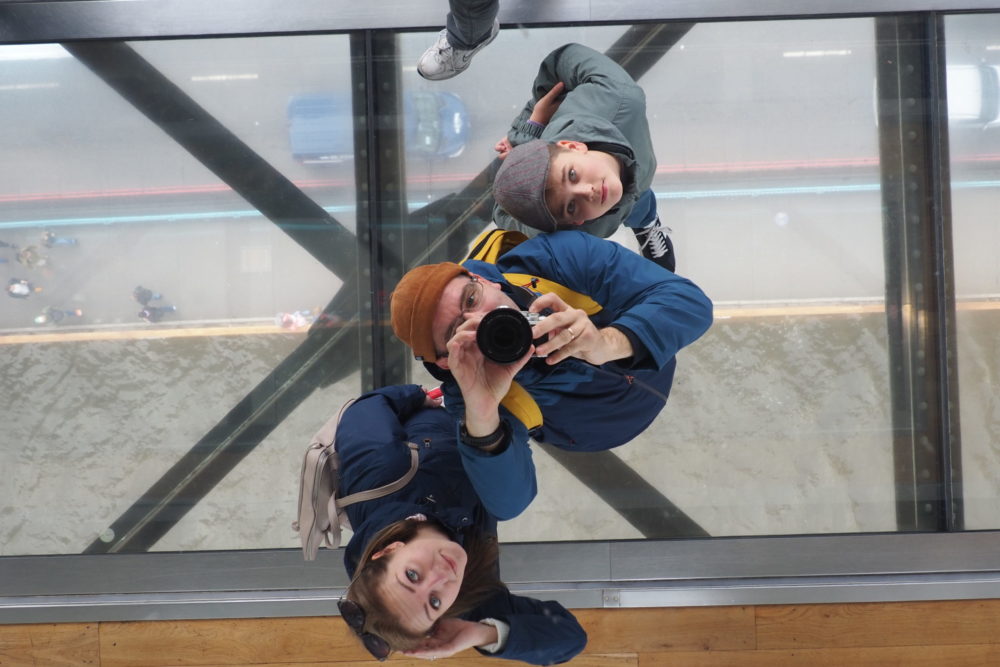
Stephen Price
Eduards Ekarts from Latvia began learning Welsh to sing lullabies to his newborn son and was surprised to discover shared histories between Wales and Latvia, including punishments for speaking the native languages in both countries’ schools.
In everyday life, Eduards works as a lawyer, specialising in corporate law and M&A transactions and lives in Riga with his family, and it’s his now-12-year-old son who he thanks for introducing him to his passion for Welsh language, culture and history.
Eduards’ journey
I do not have any connection to Wales – nor Welsh ancestry, nor relatives or friends living there, and I have not yet visited Wales (a mistake I plan to rectify very soon), Edward told Nation.Cymru.
“My first encounter with Welsh, curiously enough, was through lullabies…
Twelve years ago, when my son was a baby, at one moment I just grew bored of singing and playing the same Latvian lullabies over and over.
To make life more interesting, I began searching Youtube and Spotify for lullabies from around the world and something different to play him.
Among the various songs, I found two in Welsh and was instantly charmed by the sound of the language.
Those songs were Ar Hyd Y Nos by Meinir Gwilym and Dacw ‘Nghariad by Eve Goodman (although I now realise that the latter is not actually a lullaby, it still worked wonderfully for my son).
So, thanks to my son and to both ladies for the introduction and the consequences I am facing now.
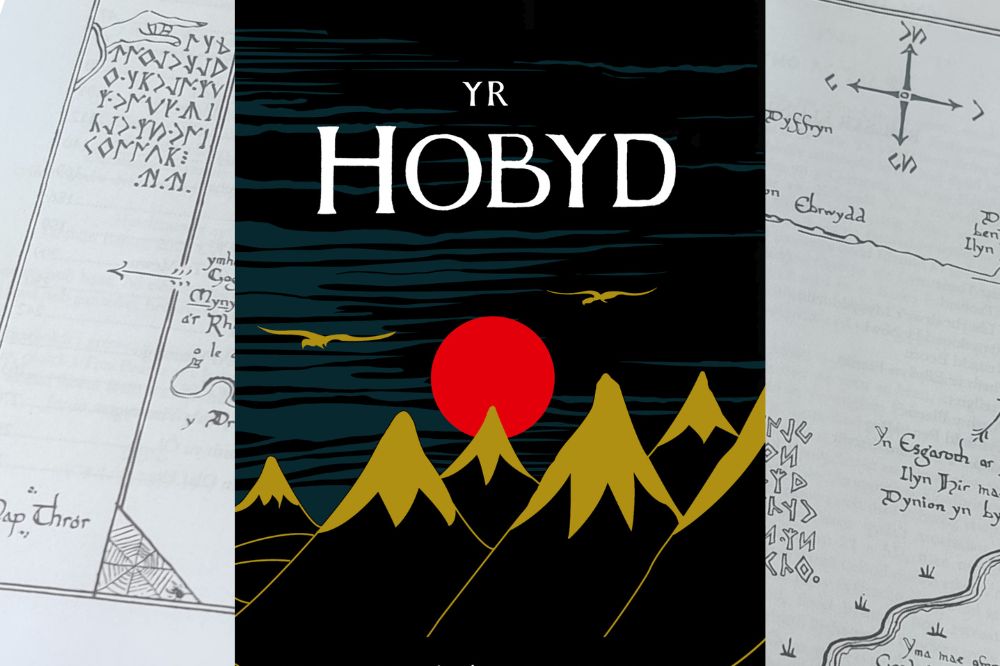
The sound of the language reminded me of Elvish language from the Lord of the Ring films (at that time, I did not know that Tolkien’s Elvish was really influenced by Welsh).
Like Arwen’s spell at the riverbank – that’s how the Welsh sounded to me – quite beautiful. Out of curiosity, I read a bit about Wales, its history, Welsh language and learned a few things, but I didn’t pursue it further at the time…
Why Welsh
Last year, I decided it would be a good idea to add to my bucket list some mental workout by learning a new language. It’s both challenging and interesting, so why not?
The next question was which language to choose. That’s when Welsh came back to mind.
I cannot name any rational reason for me to learn Welsh – I don’t expect to have many opportunities to use it and I’m not planning to relocate (hopefully, considering times we are living in).
But I thought it would be much more fun to do something simply because I want to and like it, rather than because it’s “useful”.
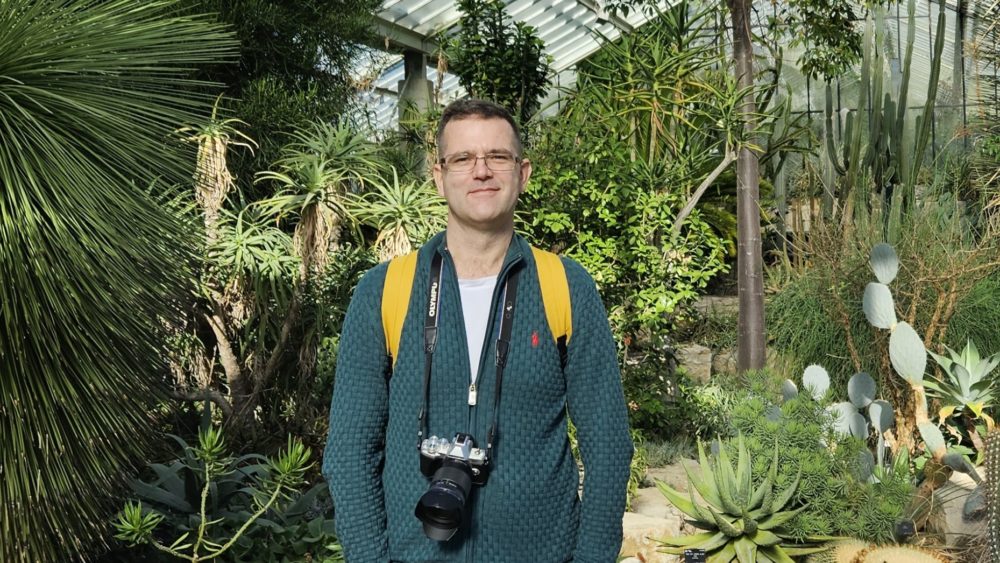
There are still some non-rational reasons for choosing Welsh.
The Welsh language is beautiful and unique.
As I mentioned earlier, I like the sound of language, its rhythm, the way it sounds in music. Actually, this is an interesting topic about how differently Welsh sounds when spoken or sung – it has very strong and springy rhythm when spoken while gentle and flowing in songs.
About the second: I am native Latvian speaker and I know to value small, rare and unique languages, I am bearer of such. Our language is among the most archaic languages in Europe and is one of only two surviving languages from its branch of the linguistic tree.
In this respect, I see a similarity in Welsh.
Coming from an old and unique Celtic branch, it does not follow the patterns of the major European language clusters. And it’s a survivor!
Latvians take pride in the fact that their language has survived despite being surrounded by bigger and dominant languages of invading powers for 700 years. As far as I know, Welsh beats that number being a stronghold for the language for over two millennia.
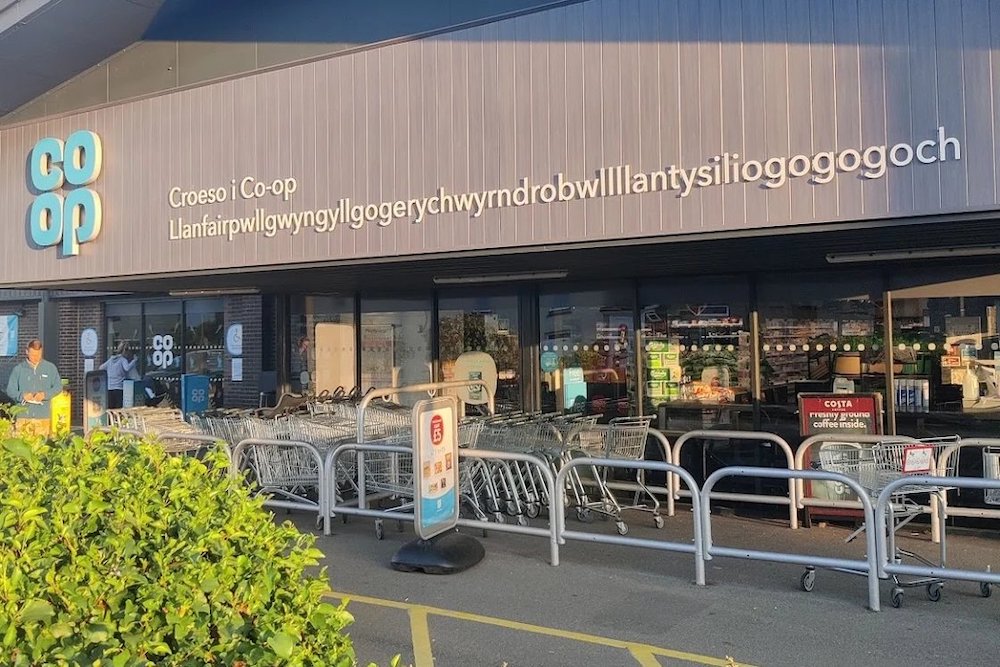
That’s something to admire. And of course, I have always wanted to be able to read that one famous long road sign.
Digging deep
I like to dig things deep, so, while learning Welsh, I also seek out interesting information about Wales, its culture and traditions.
I’ve discovered interesting similarities with my own country. For example, the fact that Wales is called a “Land of songs” while one of Latvia’s slogans is “Land that sings”.
Both countries are renowned for their choral traditions and culture which I am lucky to be part of. And yes, “Calon Lan” is an amazingly beautiful song.
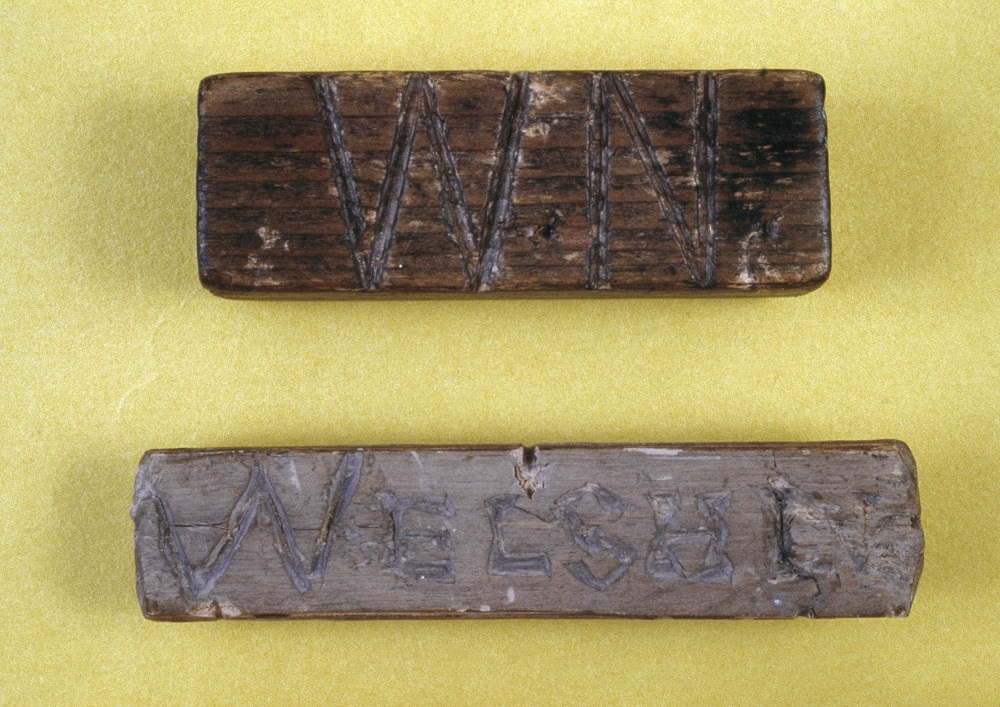
Also we share some darker pages of history – “Welsh Not” signs are just the same as ones used here in mid and late 19th century.
There is in common closeness to the sea as part of the mentality and pride in commitment to protect and nurse the language and cultural heritage.
I think, some of those things that are important to me like wild nature and the see, preservation of language, history and traditions, also characterise Wales. From all that I think I can understand the mentality quite well.
From what I have read about Wales – both historic information and historical fiction novels, there is rich history and lot of interesting things to discover for foreigner, so I have still a lot ahead.
I enjoy also little discoveries about local traditions like laverbread, leeks pinned to jackets and other local things and customs.
All these elements create a nice picture of the country and opens new pages for me to explore.
Dysgu
Regarding learning journey, I started with Duolingo. It’s a good app that adds an element of fun and competition to the learning process.
However, lack of explanations makes it challenging to learn with time and you start to search for new sources to add.
From apps I also enjoyed using Memrise but they recently removed Welsh from the app.
I like listening practice and currently use apps and podcasts such as Say Something in Welsh, the Learn Welsh podcast and Dysgu Cymraeg. T
hose listening sources are excellent, typically packaged in 20-30 minute pieces which perfectly fit listening while going from home to the office.
I have also discovered some interesting podcasts as Pigion: highlights for Welsh Learners, Sgwrsio and others, but those are still too advanced for me to follow – hopefully soon enough that will change.
As a book lover I sought out some books to aid my learning. I ordered Colloquial Welsh: The Complete Course For Beginners by Gareth King (haven’t yet really started using it), downloaded some reading materials from Learnwelsh and even found a source of books for children in Welsh – I thought it is a good way to learn basics through very simple sentences and I am mastering 3+ level at the moment.
I was very lucky to find also online lessons starting this January, just stumbled upon advertisement in facebook.
The teacher, Robert, does his teaching really great and always starts lessons with some interesting information about Wales, which is a big bonus for me.
Sadly, he is struggling with health issues now and I really hope he’ll get well soon and will continue teaching, I am very grateful for this experience. That gave me a feeling of “real” learning.

I also try to follow interesting accounts on social networks. One that really stands out is Dr. Cymraeg – his daily stories on interesting Welsh words, facts, etymology are real pearls.
Difficulties
Learning through another foreign language. Even if I speak reasonably acceptable English, it makes things more difficult that I cannot learn Welsh directly from Latvian – although I’m so excited to hear that SaySomethinginWelsh are working on this as we speak.
I try to avoid double translation as it messes up sentence structure and I try to think in English when learning Welsh. However, it is not the same. Especially regarding grammatical explanations.
First the terminology of English grammar is alien to me, second – all explanations are given in comparison to English grammar which in my case does not help at all.
All those presents, perfects, vowels, definite articles, emphatics (just to understand the terms) are killing me much more than Welsh mutations. I wish I’d learned more of English grammar at school.
Choosing a regional dialect is also confusing.
Almost every app or resource requires choosing between north and south Welsh.
I had and still have no idea what the right option would be. For now, I stick to north Welsh when I must choose, just because that will be my first destination to visit due to direct flights to Manchester from Riga.
Lack of conversation is also holding me and others I know back.
There are probably very few, if any, Welsh speakers in Latvia.
Moreover, I am also not the most social person in the world to find them. So I realise that at some point in my learning, I will need to find opportunities for conversation – both for progress and for the meaning of learning.
Maybe it is not that important now while I learn the basics, but it will become important later.
Honestly, I do not know yet how I will solve that. Will try to think of some solution when the time comes. Or it will come by itself as everything else related to learning Welsh did.
Y dyfodol
For now, I have no idea how far it will take me. Maybe I will join some DysguCymraeg Entry classes in autumn for more intense experience, will see.
Also, I do not know, will there be a temptation to quit at some point when improvement will slow down and will require greater efforts, or maybe just the opposite?
Whatever comes, currently I enjoy all the new things I learn about Wales and Welsh, and a new hobby I have found just by coincidence.
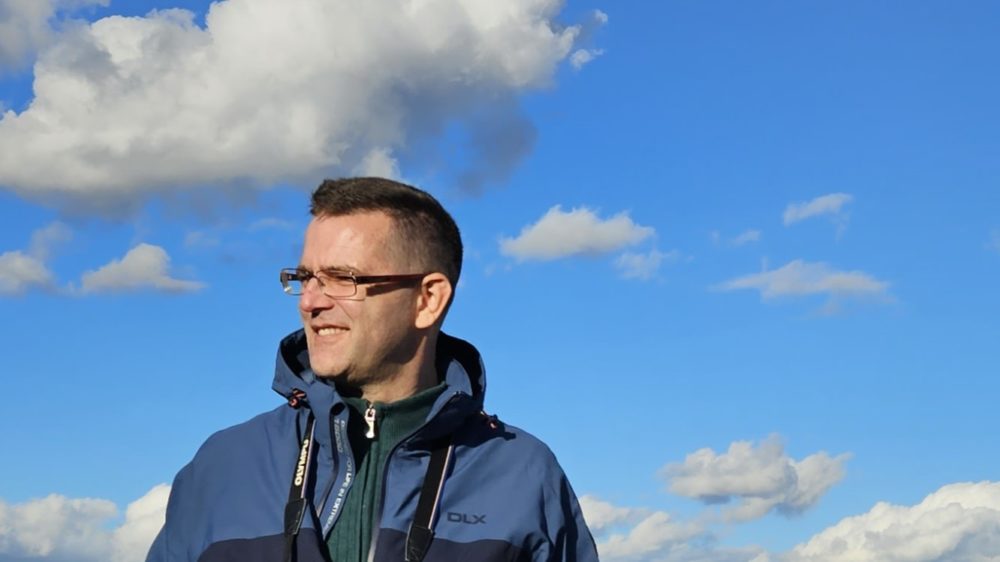
Every year I try to travel somewhere with my family. I think travelling is one of the rare things you can buy for money, that always stays with you, never losing value.
Inspired by the learning, it was easy to choose our next family trip destination. So, we are going to spend the week of school autumn holidays, at the end of October, in Wales.
This time, we will stick to the north which is easily accessible from Manchester.
We still need to decide in which town to establish our base for exploration, somewhere between Llandudno and Caernarfon, but at least the tickets are already booked.
Anyway, I am quite excited about the trip and can’t wait already. I think I and my family will enjoy Wales – from what I have seen, there is beautiful nature, the sea, hills, castles and small towns – all the things we enjoy.
And then there is also Anglesey, which I would like to see after all the things I have read about its history.
I just hope the public transport is good in Wales as I am not sure about driving on the “wrong” side, will avoid that stress in my holidays. But that is not the main concern.
My main concern is that I might find myself in situation that nobody speaks to me in Welsh, which would be a disappointment after a year of learning.
Of course, I really hope I will have the chance to use and understand some Welsh while we are there.
Click here to find out more about SaySomethingInWelsh.
Click here for more info on DuoLingo.
Click here for information on local Wales-based Welsh classes or London classes (Not exhaustive so please check social media and search engines for what’s on in your area)
Click here to find out more about Welsh learners’ magazine, Lingo Newydd.
Support our Nation today
For the price of a cup of coffee a month you can help us create an independent, not-for-profit, national news service for the people of Wales, by the people of Wales.





